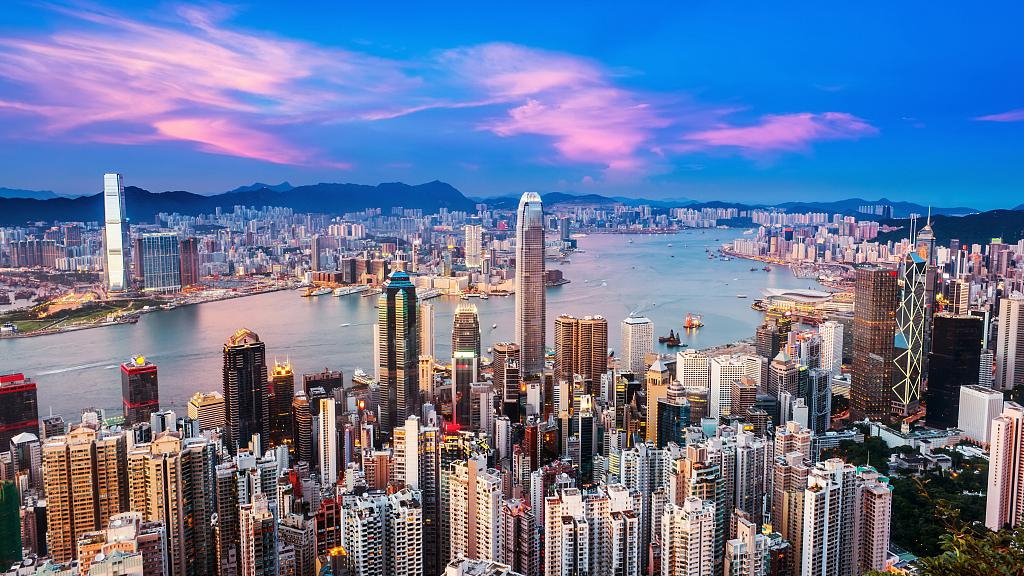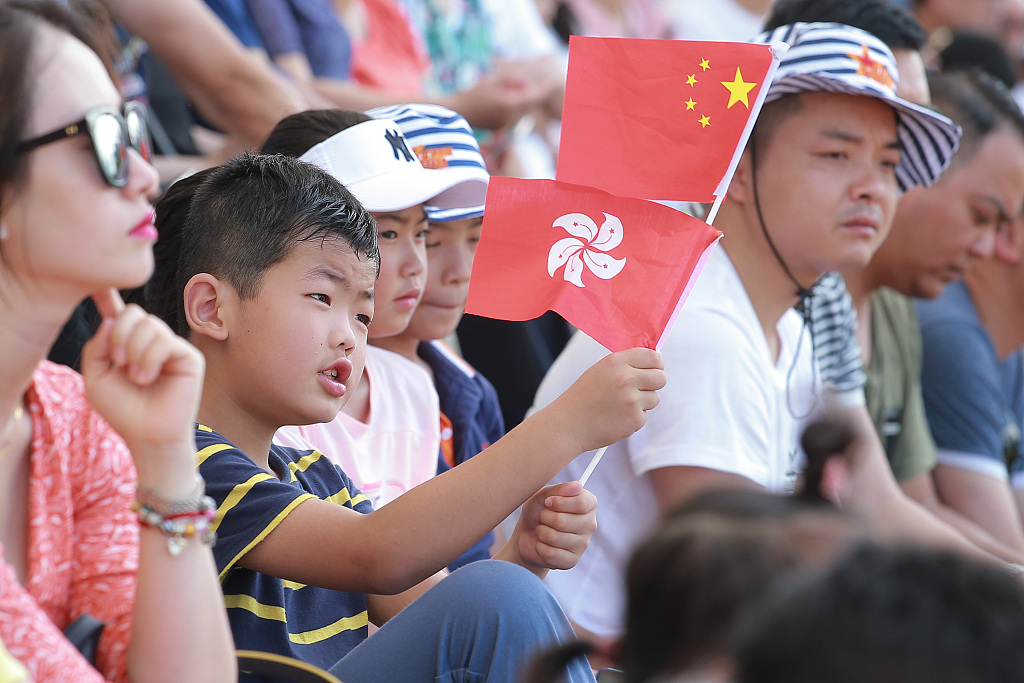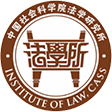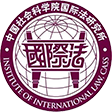 字号:
字号:小
中
大

Editor's note: Liao Fan is a professor of law at the Institute of International Law at the Chinese Academy of Social Sciences. The article reflects the author's opinions, and not necessarily the views of CGTN.
July 1 marks the 22nd anniversary of Hong Kong’s return to China. On Monday morning, top Hong Kong Special Administrative Regiong (SAR) government officials and representatives from different sectors attended a flag-raising ceremony at Golden Bauhinia Square in Wan Chai to celebrate the occasion.
Over the past more than two decades, thanks to the successful implementation of the "One Country, Two Systems" principle, Hong Kong has remained a center of international finance, shipping and trade.
Things are far from perfect though, as anywhere else in the world. Sky-high property prices, widening wealth gap, decreasing social mobility (and increasing class solidification) have been persistent problems in Hong Kong. And due to the rapid development of the Chinese mainland, Hong Kong is losing its comparative competitiveness against mega mainland cities such as Beijing, Shanghai and Shenzhen. These have caused widespread anxiety among the Hong Kong population in recent years.
To be sure, many of the problems are structural and need time to tackle. Some people, however, irresponsibly or even intentionally linked the situation to the return of Hong Kong. They made simplistic and misleading comparisons between the status quo and the years before 1997, allusively questioning the legitimate exercise of sovereignty by the Chinese central government.

Visitors enjoy a feast at the Ngong Shuen Chau Naval Base of the Chinese People's Liberation Army (PLA) Hong Kong Garrison in Hong Kong, China, June 30, 2019. /VCG Photo
This has led to a pan-politicization of social and economic problems and contributed to instability. The Occupy Central movement, the adversary attitude towards mainland immigrants, and the recent protests against the proposed fugitive bill, can all be partly explained by this pan-politicization sentiment.
In order to ease the tension and pacify the people, we need to think about the causation and ask a question: how to address the anxiety and sense of uncertainty among the Hong Kong society, especially the young generation? A meaningful starting point might be to narrow the gap between the rich and the poor, and endeavor to avoid the consequences of unrestrained capitalism.
First, the property market needs to be more open and allow more competition. A dynamic real estate market is indispensable to any economy. However, if property prices become unreasonably high, it tends to distort the distribution of resources, prevent the economy from more healthy and balanced development, and make ordinary residents frustrated or even desperate.
Causes of Hong Kong’s high property prices are many, but the lack of effective competition is a big one. The property market has been relatively closed, with a few large local developers enjoying monopoly. The Hong Kong SAR government should endeavor to break the monopoly and introduce more competitors, including those from the Chinese mainland.

Visitors are at the Ngong Shuen Chau Naval Base of the Chinese People's Liberation Army (PLA) Hong Kong Garrison in Hong Kong, China, June 30, 2019. /VCG Photo
Second, the tax and social security system might need to be adjusted to ensure a more equitable redistribution of wealth. As a leading free port in the world, Hong Kong is famous for its low tax rate and friendliness to capital. This indeed constitutes a big portion of Hong Kong’s competitiveness. Making profits is the nature of capitalism, and it should not be blamed for this.
In order to narrow the wealth gap and improve the livelihoods of ordinary people, however, large businesses and the wealthy might need to shoulder more responsibilities. This would in turn call for a reexamination of the current tax and social security system. Of course, in doing so the government will need to make a tricky balance between efficiency and equity.
Last but not least, the central government should help to create more opportunities for the Hong Kong people. As a highly outbound economy, Hong Kong relies heavily on the Chinese mainland. The economic integration of the Chinese mainland and Hong Kong needs to be further enhanced, for example, through the Guangdong-Hong Kong-Macao Greater Bay Area.
Not only should Hong Kong goods be able to reach the Chinese mainland more easily, but Hong Kong residents should be able to work in the Chinese mainland more conveniently. As a great progress in this respect, the State Council abolished the work permit requirement for Hong Kong residents to work in the Chinese mainland in August 2018. Further efforts need to be made to enable and facilitate Hong Kong residents, especially qualified young people, to work on the Chinese mainland. This is indeed a meaningful way to ensure that the central government’s policy truly benefits Hong Kong people.
From:CGTN,01-Jul-2019



